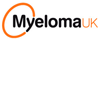Myeloma UK announces opening of an innovative new study with a novel drug combination
Posted: 18 July 2012 | | 1 comment
Myeloma UK announced the opening of MUK three…


Myeloma UK today announced the opening of MUK three, a first of its kind myeloma study for the treatment of relapsed and/or refractory myeloma patients involving a combination of two novel investigational drugs, CHR-3996 and tosedostat.
MUK three is one of the first studies to be undertaken by the innovative Myeloma UK Early Phase Clinical Trial Network (CTN). This network brings leading clinical researchers and pharmaceutical companies together within an innovative and structured model to conduct a prioritised portfolio of clinical studies of novel experimental drugs as well as highly relevant studies suitable for UK NHS clinical practice and HTA settings.
Myeloma UK, in collaboration with Chroma Therapeutics, will investigate the combination of two promising new drugs CHR-3996 (a HDAC inhibitor) and tosedostat (a first-in-class aminopeptidase inhibitor) for the treatment of myeloma.
This study presents and important opportunity for patients with relapsed and/or refractory myeloma, for whom currently available treatment options are limited.
Eric Low, Chief Executive of Myeloma UK said, “Leading the way in the development of innovative new treatments is fundamental to the strategic focus of the Myeloma UK CTN. Having funded the pre-clinical work on both these drugs, this is a great example of translational science coming out of our strategic research model in a relatively short period of time. This is something we are extremely proud of.”
Ian Nicholson, Chief Executive Officer of Chroma Therapeutics, commented, “We are very pleased to have been able to access the considerable expertise and resources of the Myeloma UK CTN in order to explore the utility of our two novel orally-dosed agents, tosedostat and CHR-3996, in a patient group for whom few treatment options exist.”
Study Detail
The Chief Investigator for MUK three is Dr Faith Davies, Royal Marsden Hospital, London. The study results from the success of Myeloma UK funded laboratory research conducted at The Institute of Cancer Research by Dr Davies.
There are two parts to the study. Phase I (dose escalation) will aim to find a suitable dose for both CHR-3996 and tosedostat and will be performed in three of the CTN hospitals, The Royal Marsden, London; University College Hospital, London; and the City Hospital, Nottingham.
Once suitable doses of these drugs have been identified, Phase II (dose expansion) will test these doses in a larger group of patients to assess the effectiveness and safety of the drug combination. This part of the study will be performed in all eight CTN hospitals.
Dr Davies said, “Having been involved in pre-clinical studies of the aminopeptidase inhibitor tosedostat, I am excited about the continued clinical evaluation of the compound in combination with the HDAC inhibitor CHR-3996. This study could offer a potential new treatment for patients with myeloma who have relapsed following treatment with other drugs.
The commencement of this study demonstrates the clear commitment and drive of Myeloma UK in identifying and testing innovative and promising new treatments through its Early Phase Clinical Trial Network.”





please contact me if you can with a contact for the person in charge of the phase 2 trial / email contact